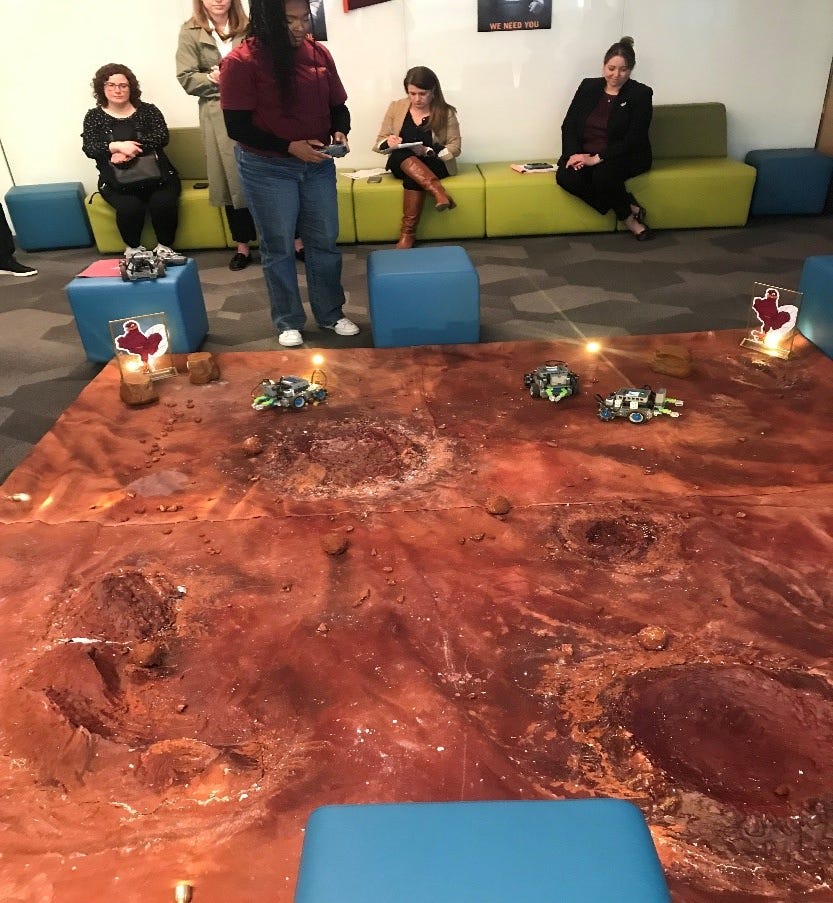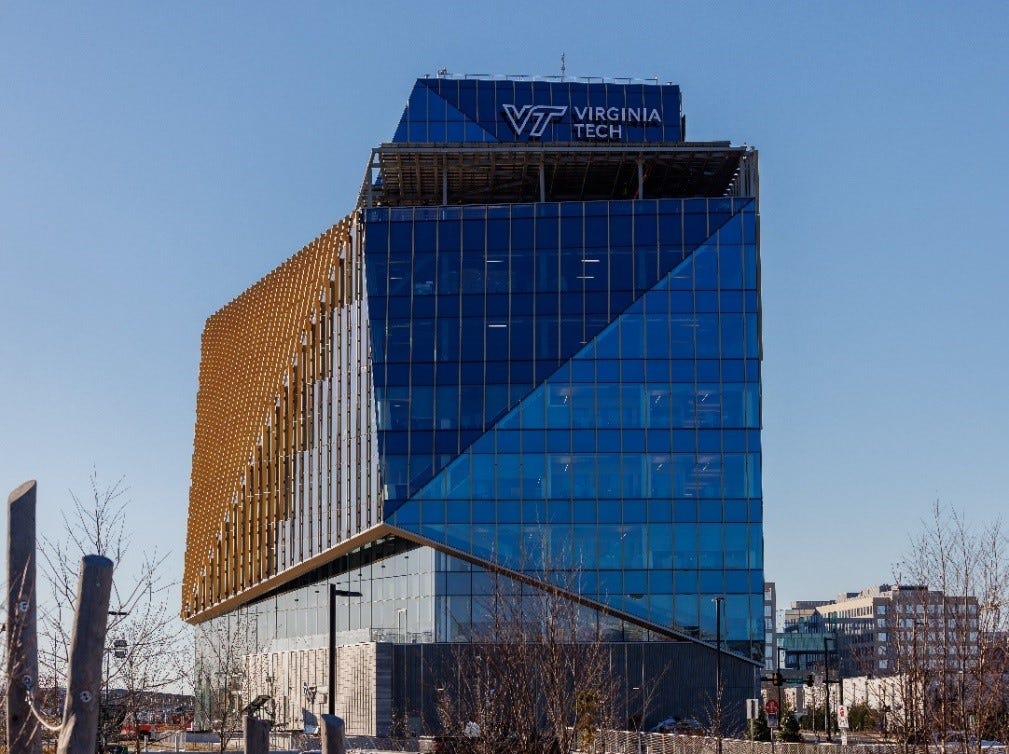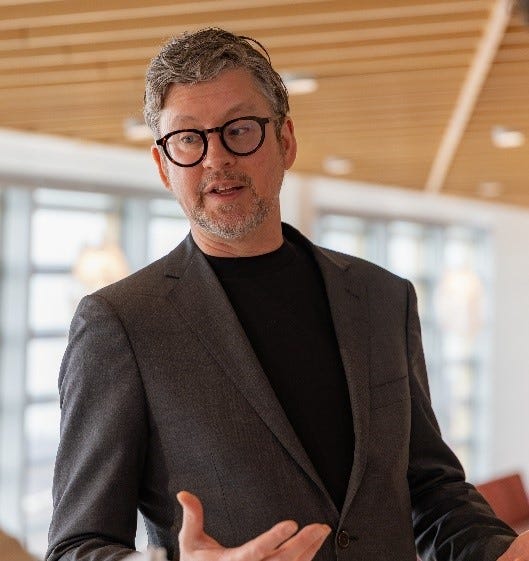Virginia Tech's Innovation Campus Opens in Potomac Yard
Bipartisanship prevails as 6-year-long project finishes. From The Alexandria Times, March 6, 2025
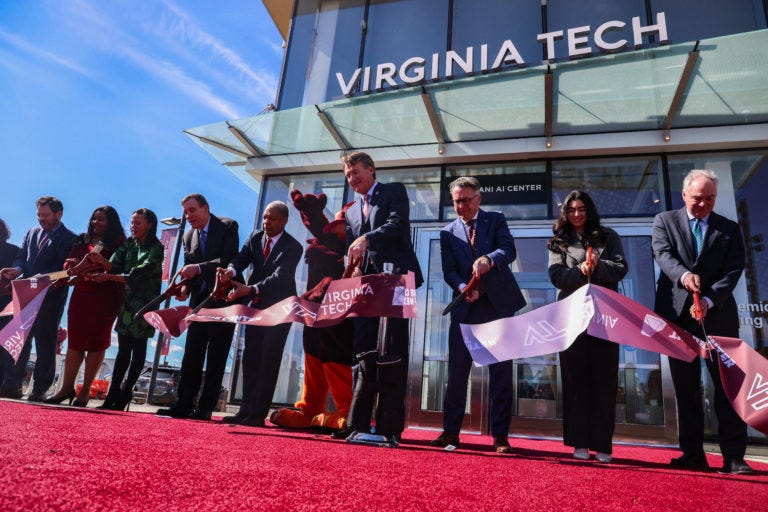
Virginia Tech University’s 11-story, 300,000-square-foot academic building—the first of three structures planned for the 3.5-acre Innovation Campus—officially opened on Feb. 28 with a ribbon-cutting ceremony.
The building has been operational since the university’s first day of classes for the spring semester on Jan. 21. The campus, in Alexandria’s Potomac Yard neighborhood, was first announced by then Mayor Allison Silberberg in November 2018 and construction began in September 2021.
The Innovation Campus is home to two master’s degree programs in engineering: computer science and computer engineering. Many of the faculty members are focused on artificial intelligence, machine learning, 5G technology, quantum architecture, software development and intelligent interfaces.
Dozens of elected officials from across the state and City of Alexandria were in attendance, including Sens. Mark Warner and Tim Kaine, Mayor Alyia Gaskins, House of Delegates Majority Leader Charniele Herring, Virginia Senate Majority Leader Scott Surovell and many members of City Council and the School Board.
Republican Gov. Glenn Youngkin was also in attendance, showing support for Virginia Tech’s expansion into Alexandria.
“The collaboration that is going to go on here is going to change the way we do things…Innovation is alive and well not just in Virginia, not just in the mid-Atlantic, but across the United States. And it’s happening right here at the Innovation Campus at Virginia Tech,” Youngkin said.
The governor recognized the work of his predecessors – including Warner and Kaine, who served as the Commonwealth’s governor from 2002 to 2006 and from 2006 to 2010, respectively.
“Governors in Virginia have the opportunity to cut lots of ribbons and to turn soil with lots of shovels, but the reality is projects last longer than four years,” Youngkin said. “… Projects last for a long time, and we hand batons to each other in order to progress important things. This is a baton that has started before I became governor and…is one that I will look forward to passing onto our next governor.”
A protest erupted during Youngkin’s speech, opposing Virginia Tech’s relationships with Amazon, BAE Systems, Northrop Grumman, Collins Aerospace, General Dynamics and Boeing, which pledged $50 million to the campus in 2021. They were in front of the stage singing “Ain’t Gonna Study War No More,” interrupting Youngkin. The group also held up a large poster stating “Genocide profiteers are not welcome here.”
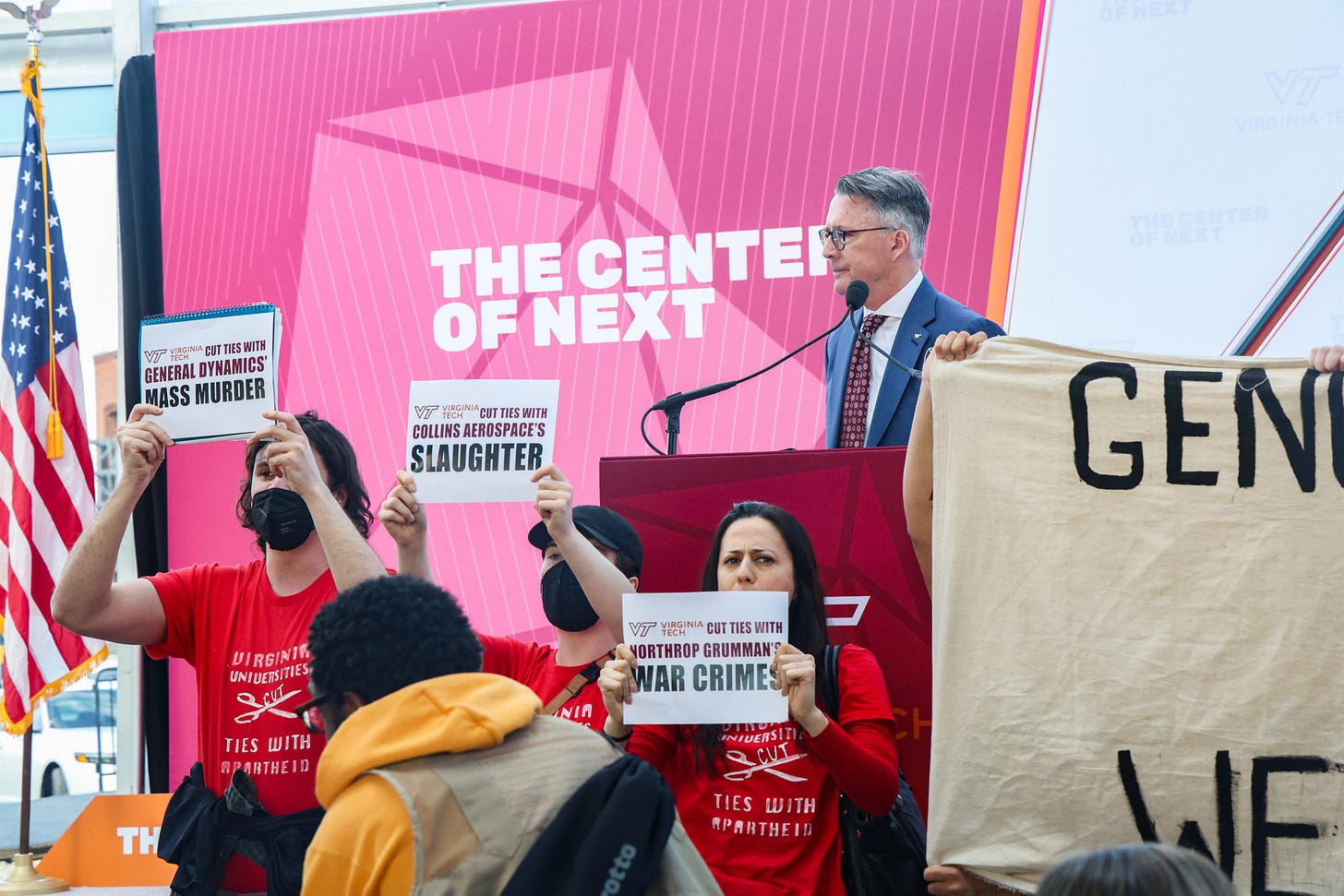
Gaskins said the innovation to occur at this campus is reminiscent of Potomac Yard’s own history of rail workers.
“The Yard was bustling with people who had an unwavering commitment to progress and committed to getting the job done,” Gaskins said. “… In 1968, every worker, every person was already showing up on this site committed to making innovation happen in the day-to-day grind of their work.”
What Happens Inside
The Innovation Campus is home to two master’s degrees in engineering. Currently, the building is staffed with 55 employees, 19 of which are Tech faculty members teaching more than 500 graduate students.
Ultimately, the Innovation Campus will host about 750 masters and 200 doctoral students focusing on computer science and computer engineering on the Innovation Campus.
Students and faculty members can also use several specialty labs to conduct research, including the Immersive Visualization Lab, which can project data, art and other images onto walls and floors; the Maker Space, equipped with 3D printing and other advanced technologies; the Cyber Physical Lab, which is designed for research and testing next-generation wireless technologies, and the Drone Testing Cage.
Professors and students are already researching and partnering with Alexandria’s schools, businesses and organizations.
At the Sanghani Center for Artificial Intelligence and Data Analytics, a team is researching “jailbreaking,” or techniques and manipulations that can be used to defeat the built-in safety, ethical and operational constraints of large language model artificial intelligence systems such as ChatGPT.
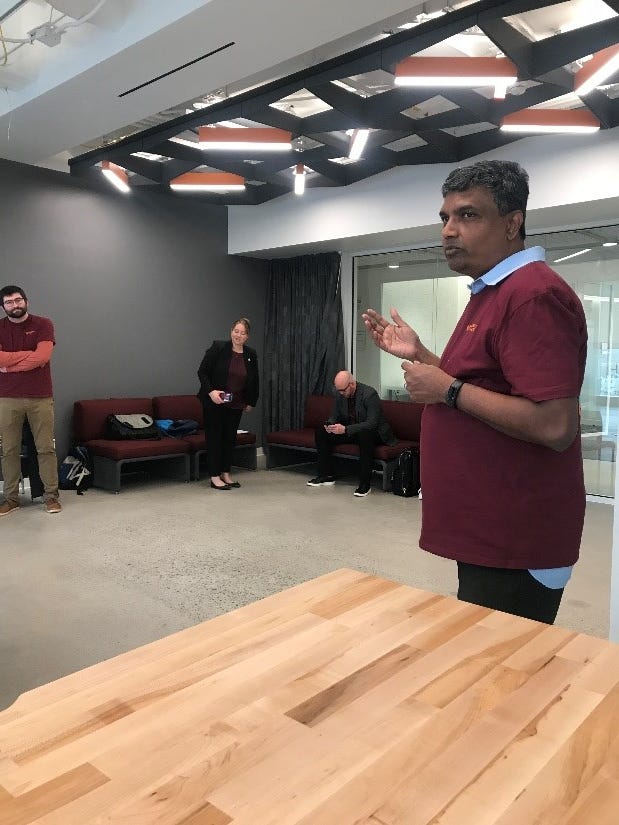
In the K-12 Program Space on the second floor, Project Red Rover is designed to introduce elementary school students to science, math, engineering and technology. Alexandria City Public Schools has already partnered with the Innovation Campus. Here, students operate radio-controlled controllers paired with small rovers to navigate obstacle courses and acquire samples in a simulated environment in outer space.
Professor Walid Saad and his students, working with the Institute of Science Tokyo, are showing how wireless networks can connect with the physical and digital worlds.
History of the Site
Virginia Tech’s Innovation Campus was brought to Alexandria as part of the Amazon HQ2 deal, which encompasses parts of Pentagon City, Arlington’s Crystal City and Potomac Yard in Alexandria.
Arlington County and the City of Alexandria worked collaboratively to secure Amazon’s new headquarters to be developed by JBG Smith. The localities secured the deal in November 2018, marking a massive investment in Northern Virginia.
The Innovation Campus was initially slated for Oakville Triangle, but plans were changed in June 2019 to place the campus adjacent to the Potomac Yard Metro Station; this move also opened the possibility of a mixed-use district with open space and retail.
Designs for the first building were approved in October 2020. The first building’s slanted exterior surfaces generate electricity, reduce solar heat gain, and provide daylit spaces for students and staff.
Vertical terracotta fins provide passive shading on the east and west facing facades. The fins also prevent solar heat gain and add visual warmth to the exterior. The exterior materials were selected by the architects, SmithGroup, to minimize reflections that might affect Reagan Airport’s control tower and flight paths.
The building is projected to generate 10% of its energy needs without reliance on fossil fuels, except for building code-mandated power for its emergency generators. An underground lot contains 169 parking spaces and eight electric vehicle charging stations.
Sven Shockey, vice president and design director at SmithGroup and a Virginia Tech graduate, said, “It was exciting to design a building with such a focus on technology.”
The proposal by Monumental Sports & Entertainment and Youngkin in December 2023 to relocate the Washington Wizards and Washington Capitals to a new arena in Alexandria was slated to be adjacent to the new Innovation Campus. Plans fell apart for the project in late March 2024.
Caitlyn Meisner contributed to this story.
Thanks for reading About Alexandria!
Subscribe for free to receive new posts.




